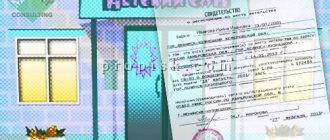Rules for receiving securities by inheritance
The estate may include various types of property. We are talking about apartments, cars, jewelry, shares in business, bank accounts and other assets. Regardless of the type of property, its inheritance will occur on a general basis. The same goes for stocks. These are securities that secure the owner’s rights to receive dividends and participate in business management.
The following types of shares are distinguished:
- ordinary;
- preferred (do not allow the shareholder to participate in management, but provide him with income from the company’s activities);
In relation to the personality of the shareholder, securities are:
- registered (registered for an individual or legal entity in Rosreestr);
- to bearer (they can be sold on the secondary market without re-registering the owner).
There are also listed and unquoted shares. The first ones are the most valuable because they are traded on world stock markets. The latter are usually produced by small regional companies. Accordingly, they exist locally and are of no interest to the world community.
To receive securities by inheritance, a citizen must follow the following steps:
- Contacting a notary office. Here the successor writes an application to receive a certificate of inheritance.
- Preparation of documents confirming the right to inherit the property of a deceased citizen.
- Sending a request to the registrar in order to obtain an extract confirming the size of the inherited block of shares.
- Contact a licensed company for an assessment.
- Payment of state duty.
- Obtaining a certificate. This document indicates the number of shares that the heir will receive.
Having received securities by inheritance, a citizen becomes a full shareholder of the company. This allows him to attend shareholder meetings and participate in the life of the organization, resolving important issues on the agenda.
At the end of the financial year, the amount of profit from the activities of the enterprise is determined. The money is divided among shareholders depending on the number of securities owned by each of them. In the event of the death of the previous owner of the shares, his heir receives the income. The death of a shareholder in this case does not have any impact on the calculation of dividends.
The new owner can dispose of the securities at his own discretion. He is free to sell them, give them away, pass them on by inheritance.
Assessment methods
There are several methods for studying stocks:
- profitable. Determined by the presence or absence of demand for a security;
- comparative. Determined by comparing the cost of similar securities;
- expensive. Determined by the cost of a similar package of securities.
In this case, the assessment during inheritance is of a formal nature. There is no need to carry out special events to analyze the cost or the market as a whole. There is no need to predict the possible income from these securities.
The final document will be presented to the court or notary. The document contains all the necessary seals, which will describe all methods for determining the cost. They also indicate the provisions of the legal document that affects the further value of the security, as well as possible demand, exchange rates and the economic situation as a whole.
There are several nuances that affect the registration of inheritance. For example, if:
- The organization does not maintain accounting records in the correct manner. This makes the work of specialists and experts difficult;
- When conducting the analysis, the last three years are taken into account. If the company has not existed for long, then the entire period of operation of the institution is taken;
- it is often easier to sell shares after taking over the inheritance, since a joint stock company can go bankrupt at any time;
- When selling shares through a repurchaser, you should understand that the cost will be somewhat underestimated.
Every person has the right to enter into an inheritance within six months from the death of the testator. In some cases, the period is reduced to a quarter if one heir refuses in favor of the second. If a citizen does not manage to receive the inheritance within the agreed period of time, then it is necessary to confirm the missed deadline with valid reasons.
All this happens in court. Confirmation must be documented. The court will accommodate the client and extend the deadline. Valid reasons include illness of the applicant or his relatives, legal proceedings or business trips.
Otherwise, if all the heirs sign a statement of consent for the applicant to receive the property, then this can be agreed upon in court. The document indicates all participants in the heritage with passport data. In this case, notarization of the agreement is not required. Property under such a document can be obtained at any day.
Nuances of stock valuation for a notary
Most often, the stock valuation procedure is ordered upon receipt of an inheritance. Its main purpose is to calculate the amount of state duty that the successor must pay upon receipt of the property.
At the moment, there are several ways to assess the value of securities. The choice depends on the characteristics of the presence of securities on the stock market. Therefore, when assessing, the following actions are performed:
- stock market analysis;
- average quote on the date of death of the testator.
The difficulty in making an assessment arises if the shares are not quoted. Then specialists have to conduct a comprehensive analysis of the company’s activities, assess the overall market conditions, profitability, etc. Then the value of the entire business is determined, and only after that - the inherited part of the securities.

The stock valuation algorithm is as follows:
- At the first stage, the market is analyzed. Experts study the industry at the regional or country level - everything here depends on the scale of the organization’s activities.
- The financial activities of the organization are determined taking into account its dynamics.
- Application of a cost approach. This is about determining the potential benefit if all of the company's assets are sold.
- Using the market valuation method. It allows you to determine how long it will take for companies of similar size to sell.
- Income method. Allows you to determine how much money you need to invest in a business to get a return.
- The last stage is the harmonization of data obtained as a result of the integrated application of assessment methods.
Valuation of shares upon inheritance occurs according to a simplified algorithm. Serious detailing of the data is not required here.
What are the types of valuation of inherited property?
There are three main types of valuation: cadastral, inventory and market.

The difference between these types of assessments is that they are carried out by different organizations and have different estimated values. The most expensive price is set during market valuation, and the lowest - during inventory valuation. It should be noted that the notary has no right to tell the heirs where exactly to evaluate the inheritance. It is necessary to have a document that provides information about the market price of the property, but by whom it will be carried out, the heir must decide exclusively.
Cadastral valuation
This type of assessment is carried out by a government organization or an independent expert company that has the right to conduct this type of assessment. All information obtained as a result of determining the cadastral price is entered into the state register.
Nowadays, situations quite often arise when heirs challenge the assessment of the inherited property. In this case, he has the right to contact an independent expert service, order an assessment and receive a report on the market valuation of the property.
If there is a need to find out what data is indicated in the cadastral register, this can be done by going to the official website of Rosreestr and taking the following steps:
- Fill out the application form posted on the website, indicating your intention to receive an extract;
- You must indicate the number of the object under which it is listed in the cadastral register, the value of which you want to know, and find its location on the map;
- Electronically upload a document on the results of the property assessment to the website.
The second option for obtaining an extract from the cadastral register is to contact Rosreestr directly with the same application. After this, you can receive the necessary document within five working days.
Inventory assessment
This type of assessment is carried out by an expert from the technical inventory bureau. This type of valuation does not take into account many factors that directly affect the market value of the property being valued. For example, when assessing housing, the location of the property being assessed (the center of a settlement or the outskirts), as well as the accessibility of infrastructure (the presence of a nearby hospital, school, kindergarten, etc.) is not taken into account. All this has a significant impact on the value of the property being assessed. Currently, a notary is obliged to accept any document on the value of inherited property, and, based on the value indicated in it, calculate the amount of state duty.
Market valuation
The market price of a property is the best estimate that can be used when buying or selling property. Here, when calculating the cost, all factors that may influence the price are taken into account. Not only real estate, but also any other objects of inheritance can be subject to such an assessment. For example, transport, collections, securities, business, and much more that may be of value. If you provide an act on the market valuation of the inherited property, but the amount of the state duty will be calculated from the value of the inheritance indicated in the act.
5 / 5 ( 12 votes)
What factors influence the market value of shares
There are the following types of share prices:
- Nominal. This value is indicated on the face of the security. When determining it, the amount of the authorized capital of the organization is taken into account.
- Emission. The initial offering price at which the shares were purchased by the holder.
- Market. The actual purchase/sale price of securities on the market.
When calculating the state duty, the market value of the shares is taken into account. This indicator is influenced by the following factors:
- Circulation of a package of securities on world stock markets. Stock indices are taken into account here.
- Demand for the company's products in the global market.
- The mood of the target audience.
- Technical factors.
- The company's profitability level taking into account financial dynamics.
- Prospects of the organization.
- Size of assets, taking into account fair market value.
Taking into account the above factors, we can conclude that assessing the value of shares is not much different from analyzing the company’s business as a whole. The main influence on this parameter is the balance of supply and demand.
Types of joint stock companies
Shares can be issued by public and non-public companies. There is a significant difference between the shares of public and non-public companies related to the regulation of the turnover of shares.
Public joint stock companies (PJSC).
Shares of public joint stock companies are distributed by open subscription and can be freely traded on the open market and be the subject of exchange trading in accordance with the rules established by the current legislation on the turnover of securities.
Non-public companies.
Unlike shares of public companies, shares of non-public companies have strict restrictions on distribution and circulation. Shares of non-public companies can only be distributed among existing shareholders of the company and cannot be sold to third parties other than with the consent of existing shareholders. Shareholders of non-public companies enjoy preferential rights when purchasing company shares. As a result, shares of non-public companies do not participate in circulation on the open securities market and cannot be the subject of exchange trading.
It should be noted that shares of public joint stock companies can be sold at lower costs for the seller, that is, they can be sold in less time of market exposure and with lower costs for the sale itself (searching for a buyer), which has a positive effect on their market value. Thus, other things being equal, the market value of shares of a public company will be higher than the market value of shares of a non-public company.
How is the assessment done?
Shares can be inherited in two ways:
- by will;
- in order of legal priority.
The will has priority, therefore, if there is a document, the shares are distributed among the heirs in the order established by the testator. Regardless of the method of inheritance, securities are subject to valuation.

Based on the data obtained, the amount of the state duty is determined. It amounts to:
- 0.3% of the market value of shares for close relatives of the testator (maximum duty - 100 thousand rubles);
- other heirs pay 0.6% (maximum - 1 million rubles).
Valuation of shares for a notary is carried out by independent valuation companies that are licensed to provide such services. You can order a report from an organization that is a member of the SRO of appraisers. The heir can choose the appraisal company himself. To do this, you should pay attention not only to the pricing policy, but also to the company’s reputation in the market. Thus, it is better to overpay, but order an assessment from a company with experience, which will reduce the risk of delays or receiving false information.
The procedure for evaluating shares for a notary consists of the following steps:
- Conclusion of an agreement with the company.
- Counting the number of shares.
- The choice of valuation method depending on the quotation of securities on the stock market.
- Preparation of an assessment agreement, its certification.
- Issuing a report to the customer.
Where to evaluate shares - review of the TOP 3 valuation companies
As always, we monitored the valuation services market for you and selected from the entire variety the 3 most reliable companies that will evaluate shares quickly, professionally and inexpensively.
Meet!
1) SAB Bureau
SAB Bureau is a Russian appraisal company with many years of experience. The geography of the company is the entire territory of the Russian Federation. All employees of the company are members of the SRO, having qualification certificates and diplomas from the best Russian universities and international training programs. Excellent theoretical knowledge is supported by practical skills.
Main advantages of the company:
- scientific approach;
- flexibility towards clients;
- professional staff.
2) Rusfininvest
The company cooperates with both individuals and legal entities in Moscow and the Moscow region in the field of valuation of intangible assets, movable and immovable property. Competence, individual approach, 100% examination by SRO, detailed reports - these are just some of the features that distinguish Rusfininvest from other appraisal companies.
Rusfininvest's clients are such well-known companies as Ochakovo, Transneft, Eurocitybank, TK Servissnab and many others. Rusfininvest offers its clients the service of protecting appraisal reports in court.
Read a detailed article about what forensic science is.
3) Uphill
Uphill is a large consulting company that carries out all types of appraisal work throughout the Russian Federation. Specialists carry out reports not only according to Russian, but also to international assessment standards. In addition, experts can easily compile an assessment report in foreign languages. You will not see old, irrelevant market reviews in the company's reports, only the latest statistics and analytics.
Pleasant “little things” from:
- flexible pricing:
- discounts and bonuses for clients;
- the ability to travel to the assessment site on weekends;
- free delivery of reports to clients;
- assessment times are 2 times lower than the industry average;
- free consultations and express analysis.
You will find more information on the procedures for assessing intangible assets in a special material on our website.
What documents are required for an independent assessment?
To enter into an agreement with an appraiser, you will need the following papers:
- death certificate of the testator;
- the applicant's civil passport;
- extract from the register of shareholders (confirms the presence of a block of shares).
This is a basic list of documents. If necessary, the appraiser may request additional papers. These include:
- reports on shares issued by a particular company;
- information about funds;
- information about the issue of securities;
- financial and accounting documentation;
- information about the assets and debts of the organization.
The average assessment time is up to 5 working days. The value of the shares is determined at the time of the testator's death.
How to evaluate stocks yourself?
Valuing securities is a complex process. That is why it should only be trusted by professionals.
Can you value stocks yourself? You can try, but you will only get average data. In addition, such an assessment of the value of shares will not have legal force. For your own assessment, you can use the information provided on the websites of various exchanges.
To evaluate shares (not quoted on a stock exchange) of closed or open joint-stock companies, you need to have information from the balance sheet as of the valuation date.
How much does the securities valuation procedure cost?
Prices for the provision of such services are not fixed at the federal level. They depend on the prices of a particular company.
In most cases, the valuation of unquoted shares is more expensive compared to listed ones. This is due to a more complex analysis procedure that requires taking into account many variables. However, the valuation of shares for inheritance is always cheaper than a similar analysis carried out before concluding a purchase and sale agreement.
The average cost of assessment is from 1000 to 3000 rubles. In some cases, the amount may increase to 10,000. All costs of the assessment are paid by the heir. If there are several applicants, then they determine the payer independently or divide the amount equally.
Appearance of the assessment report
The final document must comply with the requirements of Federal Law No. 135 “On Valuation Activities. The report includes 20-80 pages, which indicate the purpose of the analysis, describe the approaches used, the nuances of the calculations and the results. The last page contains the appraiser's seal. The document is valid for six months.
If the report does not comply with the requirements of current legislation, the notary has the right not to accept it. It is important that the appraisal company is a member of the SRO.







